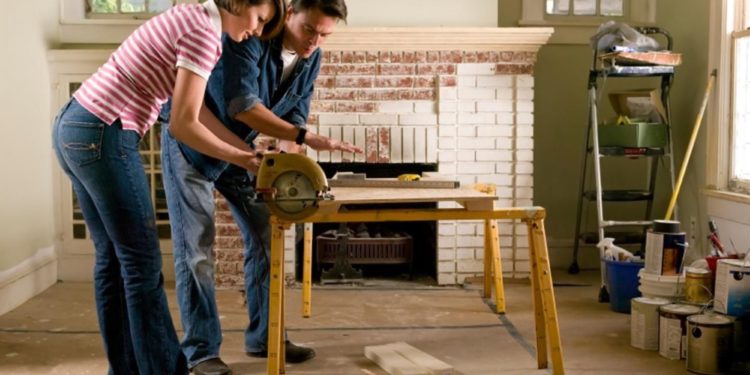Throwing yourself headfirst into home improvement as a new hobby is an exciting decision, but one that should only be done once you have fully understood the skills it takes, the tools you need and what advice you should take from others.
Advantages of DIY
Being a dab hand with a hammer and nail has many advantages for you and your family. When a basic household appliance or object breaks, many homeowners’ first thoughts turn to how much it is going to cost to fix or replace said item. With an understanding of home DIY, though, this is not necessarily the case.
Whether it is a faulty bookcase or a scratch up the bathroom wall, it pays to be able to rectify the error yourself as it will be done quicker and cheaper than by calling out a contractor or handyman. If you have never done anything like this before, however, an excellent place to start is by observing others.
Help others first
This is easiest if you have a friend or family member who is keen on DIY and home improvements. Ask if it would be okay to help them out one weekend, lending a hand for any simple tasks. From here, you will likely pick up basic practical skills such as painting, putting up shelves and filling in cracks, and you should be asking questions along the way. This will enable you to build up a base level of knowledge into whatever DIY tasks you have yourself, and you may even be able to borrow some tools.
Finding parts
Whether you have managed to borrow some parts and tools from a friend or not, nobody getting into DIY will stand much of a chance without their own basic toolkit. Finding parts and tools – be they for hardware, electronics or other tasks – are easy to find using the Octopart.com search function. Affordable kit such as drill bits and hammers are a staple of the DIY amateur or expert alike and, once obtained, will stand you in good stead for getting started on your own projects.
Starting easy
Having shadowed your DIY contact and purchased some tools, it is time to begin on your own home improvement project. It is easy to get carried away, thinking you will be able to jump straight into building a shed or renovating the spare room, but attempt to start easy. Repaint a small bathroom or experiment with hanging picture frames neatly on the wall before you embark on a house-changing activity. This will ease you in and get your hands and mind accustomed to your new tools and your new hobby.
Plan ahead
The final top tip for getting started in DIY is to always plan ahead. Picking up an electric screwdriver and announcing you’re refitting the bedroom when you have little to no experience of such a task is not likely to go down well with your family or, indeed, the end result of the bedroom. Consider every project you embark on carefully; ensure you have the correct tools and always ask for advice when unsure.


